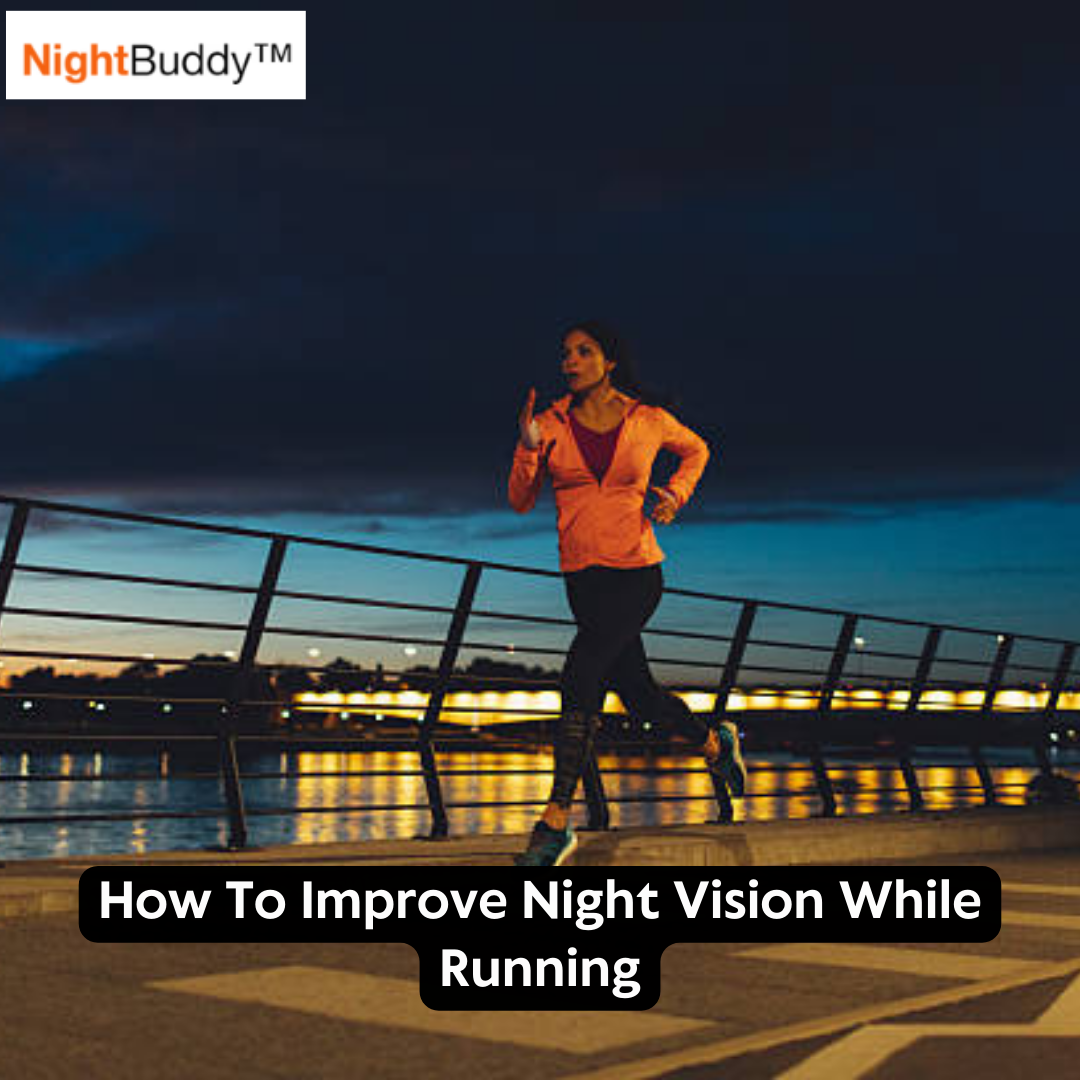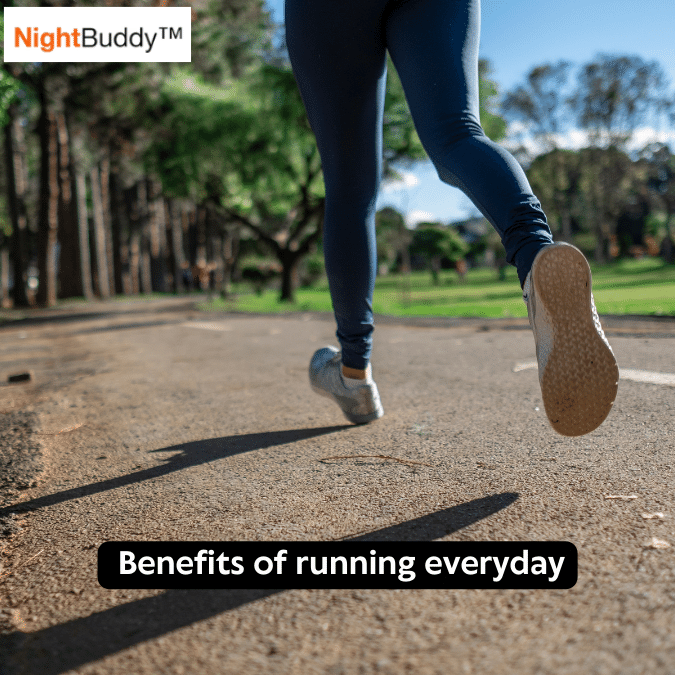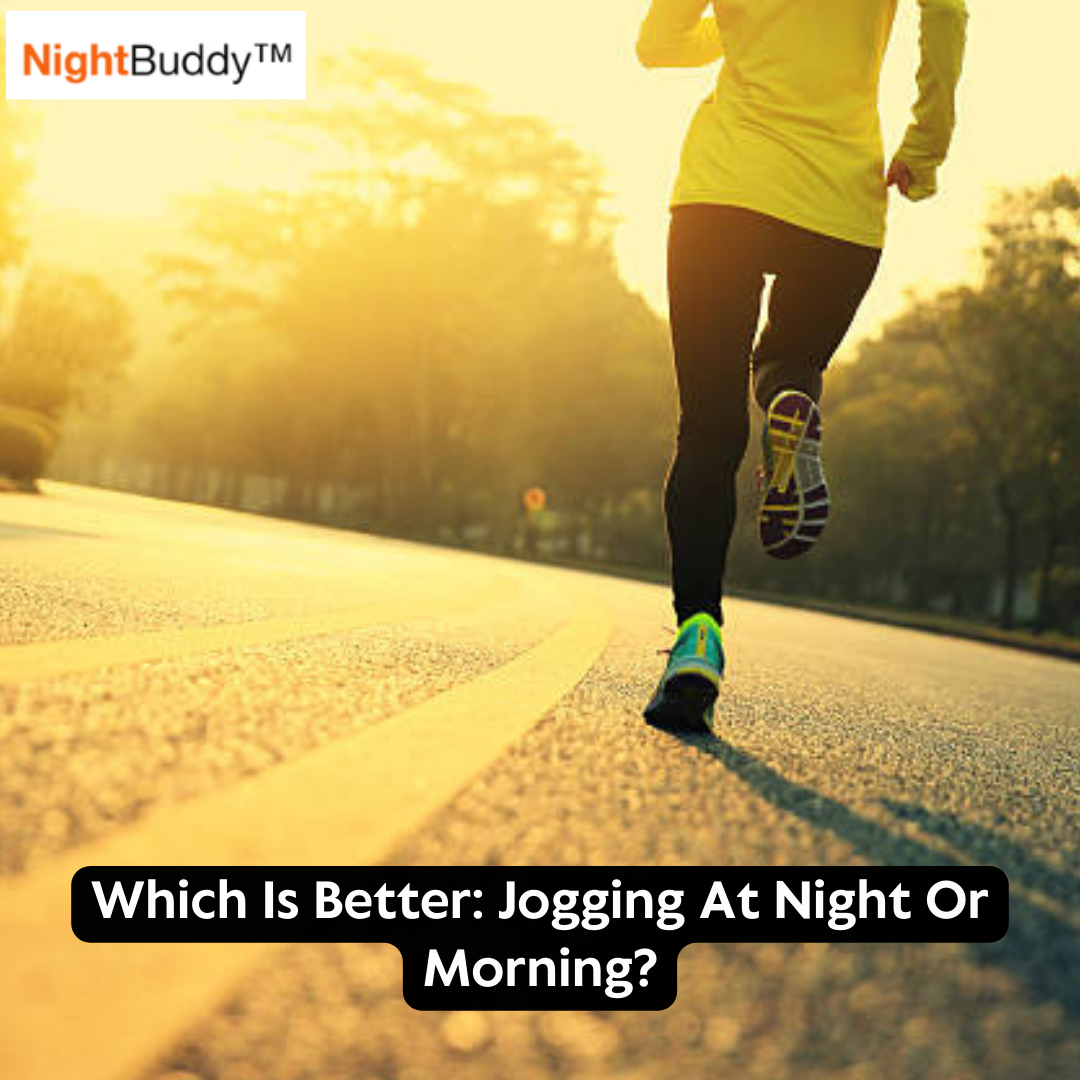You improve your night vision when running at night by wearing a headlamp. This is one of the most crucial tips for ensuring your safety.
What matters most when working out in low light conditions is to ensure that you have sufficient vision at night. It helps, too, that you wear night-vision running glasses. These typically are blue light glasses that help drivers to see better in the dark.
Potential dangers present themselves when somebody runs in the daytime. Or any time for that matter. But these hazards increase when training at night.
Read also; How to Stay Safe and Visible When Running at Night
The most essential advice in this aspect is to gear up to be able to see and be seen. Consider that you have to ensure proper night vision while allowing yourself to be visible.
Why Wear A Headlamp When Running At Night?
You need to prevent poor night vision. Dim lights are apt to compromise your vision so you need to have visible light with you.
If you're a newbie or a regular pre-dawn or after-dark runner, you have to adapt to the subtleties of the surface you're dealing with. Without bright sunlight, you cannot see the terrain you're traversing, and you have to adjust your footfalls. You'll have to prevent tripping and other hazards in general.
Wearing a bright headlamp or a hand-held flashlight illuminates your path. It enhances your vision so that you can steer clear of accidents while running in the dark.
Streetlights brighten paths and roads in the nighttime when bright sunlight is absent but don't solely rely on them. These devices limit your route options while risking leaving you in the dark when they are poor or broken.
The NightBuddy LED headlamp pumps up a powerful 350 lumens to light your path. Its beam distance reaches 100 meters, enabling you to see the immediate and distant trail. With adjustable straps and zero-bounce technology, you are assured of safety and comfort. This headlamp stays in place regardless of your activity.

With 5 light modes, you can adjust the lighting, and it even has a red light setting to make you see better in the dark. The NightBuddy LED headlamp is a vital gear that will give you better eye condition and boost your peripheral vision when running in the dark.
Ensure Your Eye Health As A Regular Nighttime Runner
As an athlete, you should implement a holistic approach to boosting your health and fitness. It makes sense to use a headlamp to prevent blurred vision when you're training, but you have to build your defense on a deeper level.
That is, you ought to take good care of your eye health. You must avoid conditions like nyctalopia or night blindness that will get in the way of you enjoying your nighttime sport.
Below are 7 ways to guarantee that you have better night vision for nighttime activities such as running or driving.
#1 Eat the right foods- make your diet healthy
Eat foods rich in nutrition for better eyesight. Victuals with plenty of Vitamin A content are a must. Vitamin A-rich foods have ample rhodopsin elements- proteins in the retina that absorb light.
Examples of these foods are green leafy vegetables, tomatoes, carrots, potatoes, lettuce, and the like. They can also be found in a wide range of dairy products, along with liver, squash, and broccoli.
The above-mentioned foods ward off eye diseases because they abound in antioxidants. They contain the carotenoids zeaxanthin and lutein that break up free radicals.
Ocular disease and reduced vision can be prevented when you consume sufficient fish and shellfish because they are good sources of an omega-3 fatty acid called DHA. Half of the number of photoreceptors in the retina is comprised of DHA.
Zinc-rich foods also treat a decline in night vision, and examples of these are shellfish and oysters. Zinc, as a nutrient, works with Vitamin A in averting reduced vision.
Ocular disease and other underlying conditions of the eyes are staved off by eating anthocyanin- abundant rich foods like bilberries. Foods that contain hefty amounts of sulfur, lecithin, and cysteine ought to be consumed regularly to fend off blurry vision and macular degeneration.
#2 Perform eye exercises that boost your vision
You should have your regular eye check or comprehensive eye exam. This will ensure that whatever eye diseases or night blindness you have will be monitored. You might also need a pair of glasses, especially if you are constantly experiencing eye strain.
When you are working or studying, make sure that your light environments are healthy. Avoid too much glare at night.
Make it a habit to do daily eye exercises, preferably after waking up, before going to bed, or after doing daily activities that strain your eyes. These will improve your vision and retinal health.
#3 Give your eyes regular and sufficient rest
Are your eyes regularly exposed to computer screens, your cell phone, the television, or other bright environment? Make it a point to let them rest while you're doing these activities. For every 50 minutes of engaging your eyes, rest for 10 minutes. This way, you prevent retinal health issues and problems and the risk of night blindness.
A particularly effective way of warding off retinal health issues and the risk of night blindness is to lie down and put slices of cool cucumbers over your eyelids. This method rests your eyes after having a harder time doing certain activities.
#4 Avoid or stop smoking
You must have abundant levels of Vitamin A in your body to improve your night vision. A deadly combination that'll harm your eyesight is a lack of Vitamin A and the habit of smoking.
Studies have shown that ingesting too much nicotine from cigarettes hampers the production of rhodopsin in your eyes. This protein is a purple or dark pigment that allows better night vision. Other than this, smoking increases the risk of developing eye diseases, blindness, and difficulty seeing in low-light situations.

#5 Give your eyes regular and effective massage
A common trick that you can do to alleviate visual difficulties is to give your eyes a massage. Do this by closing your eyes tightly. Using the fleshy, soft part of your hand, apply a bit of pressure to both of your eyes.
Let your palm stay there for 5 to 10 seconds. For that time period, you'll see a blank or bright light. Following this, when the black returns, open your eyes. As a dark adaptation, you'll be able to see better in the dark.
This process of dark adaptation as a result of massaging your eyes is specifically useful if you're doing a crucial activity at night, such as running or driving. With your headlamp, waist light, reflective gear, and better night vision, you'll be able to see oncoming headlights that'll keep you safe and visible.
#6 Minimize the exposure of your eyes to bright sunlight
Bright light during the daytime can diminish your night vision. It's because it reduces the capability of your eyes to adjust to darker environments. Wear sunglasses when you are outdoors in the daytime so that you can protect and fortify your vision.
If you are outside doing sports activities like skiing, running, or cycling during the day, wear red-tinted glasses to protect your eyes. Ward off the effects of glare from your computer or cellphone screen by toning down their brightness in a dark background or room. The benefits of fighting glare are significant in preserving your eyesight. Painful glare can be avoided if you wear anti-radiation eyeglasses.
Your day vision has to be protected so that you can optimize your vision at night. If you happen to set out on your nighttime run or activity, close your eyes before getting into the dark. Your vision under conditions like this needs to adjust. Consequently, you can experience standard vision even at night.
#7 Consult your doctor to ensure your eye health
Vision from age is a major factor to consider. However, you must preserve and ensure your eye health at any age. If night vision issues arise, consult an ophthalmologist and optometrist.
Conditions of glare, cataracts, and other problems are the main causes of night blindness. You must maintain your standard vision and guarantee healthy vision under conditions that require efficient seeing.
Night blindness is not a common condition, and you have to see your doctor for treatment. It takes place due to many reasons, such as dietary deficiency and poor eye health practices. Getting medical attention can help restore your standard vision and prevent further damage to your sense of sight.
Final Thoughts
In your daily life and daily activities, you need a well-functioning vision. More so in the nighttime when you drive or do after-dark sports such as cycling, fishing, or running. Glasses for night driving can help, and in the case of outdoor sports, you can wear a headlamp.
Other essential light sources can be a waist light or a hand-held flashlight. Reflective clothing and reflective glasses are also musts, especially when you encounter glaring lights from oncoming headlights in which you become visible.
You must invest in your eye health and vision wellness. It takes a certain time period to do this because it entails doing a regimen as part of your lifestyle. This requires a healthy diet that's rich in beta carotene, omega-3 fatty acid DHA and a blueberry-enriched diet, to mention some.
Your habits are elemental, wherein you should wear devices such as corrective lenses, contact lenses, and different types of eyeglasses to protect your eyesight.
Frequently Asked Questions
How can I make myself visible when running at night?
You should be visible to motorists and pedestrians when running in low-light conditions. To do this, you should wear reflective gear, including a night running headlamp. Thus, you keep yourself safe by seeing and being seen.
Is it ok to run or work out at night?
Yes, because running at night makes you feel more relaxed. It allows you to burn excess energy. At the end of the day, when you de-stress, you'll be able to sleep healthily. Exercise releases endorphins in the body, and they are called "feel-good hormones." They enhance your mood and diminish your anxieties.
Is it better to run in the dark?
It feels that way to runners. It makes them feel like they are running faster at night. Spatial cues are done away with when the lights are out, and your concept of pace is altered. Due to this, many athletes prefer to run at night.
Read also;
Which Is Better: Jogging At Night Or Morning?





Leave a comment
This site is protected by hCaptcha and the hCaptcha Privacy Policy and Terms of Service apply.